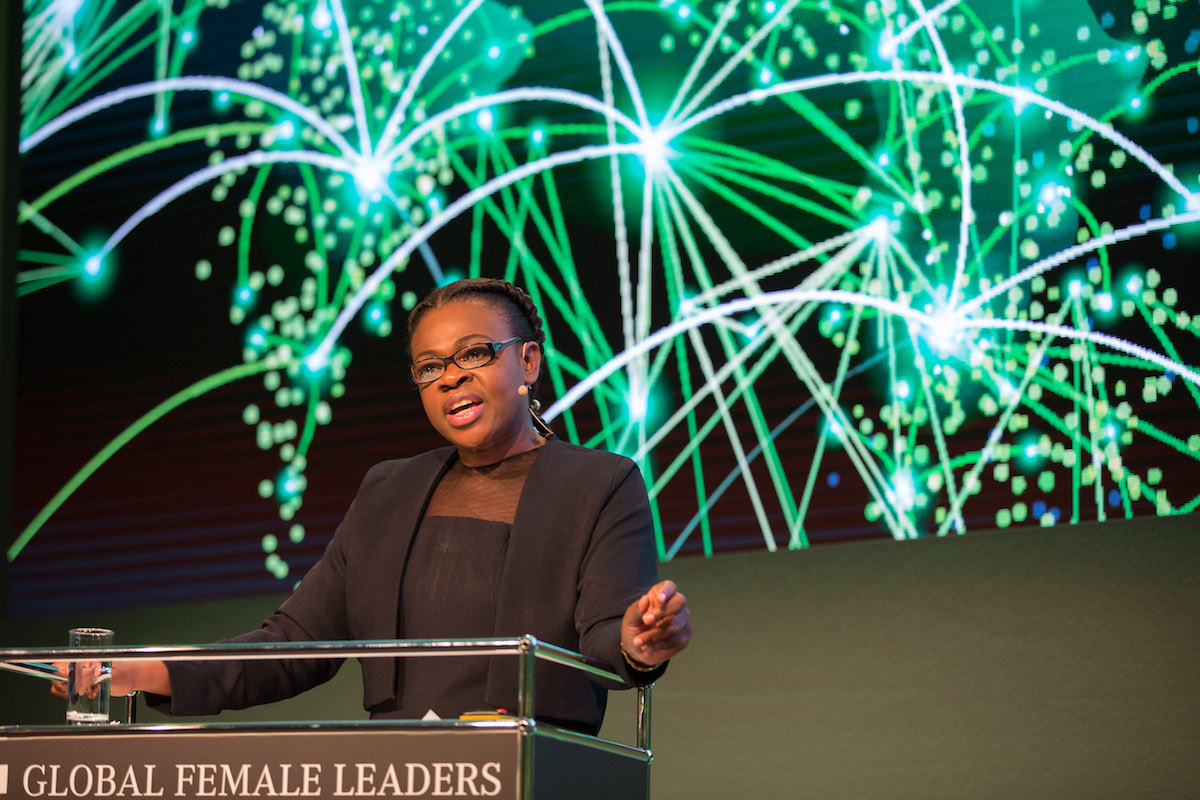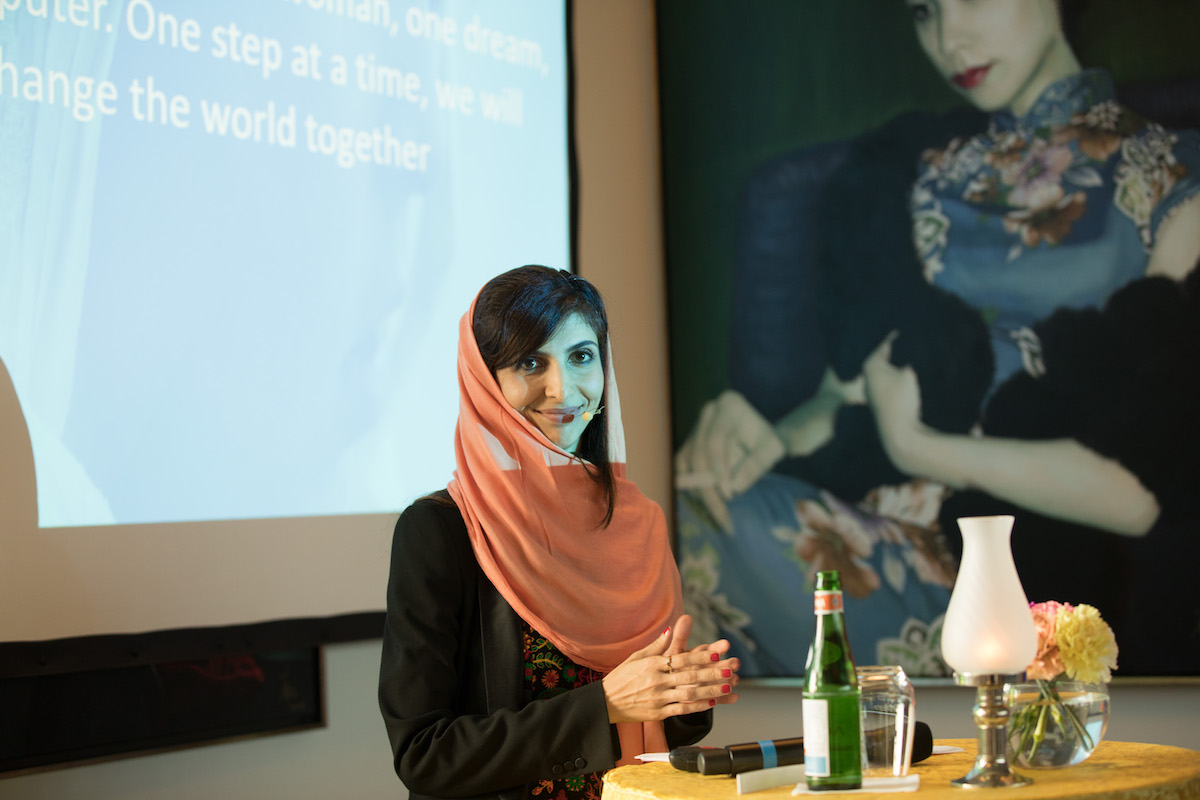The theme of the 5th annual Global Female Leaders summit was ‘The Values of Leadership in Times of Transformation, Disruption and Artificial Intelligence’.
The economic forum for female executives included more than 60 speakers and was held over 2.5 days from 3–5 June.
Here are 4 lessons from Global Female Leaders 2018:
New technology and entrepreneurship are two mighty tools empowering women
Roya Mahboob’s keynote presentation at Berlin’s China Club was a beautiful reminder of the effect that just one person can have on the lives of many.
As a female from Afghanistan, technology was her window to the outside world.
She went against the grain, earned a degree in computer science and founded her own IT company by the age of 23 – the first female to do so in Afghanistan.
“If we do not have the courage to dream different, nothing will ever change,” she says.
Today, less than a decade later, Roya is a serial entrepreneur, CEO and President of Digital Citizen Fund, Digital Citizen Brew and EdyEdy. She was named by TIME Magazine as one of the 100 most influential people in the world in 2013.
Via Digital Citizen Fund Roya focuses on building digital literacy for women and children in developing countries. Technology, such as blockchain, is empowering women by bridging the gap between education and the job market. “Education needs opportunity,” she says.
She shows how the borders between countries and the barriers of cultural stereotypes are no match for technology.
“It starts with one girl, one woman, one dream, one computer. One step at a time, we will change the world together,” she says.
Identify your purpose to be an authentic leader
Maidie Arkutu, Vice President, Unilever Francophone Africa, shared inspiring insights into the grit, passion and perseverance needed to be an authentic leader.
“In business we are two people – your heart self and your work self. Having to be two different people creates stress,” says Maidie. To alleviate this, we must take our heads and our hearts to work – our whole self.

“We can be successful leaders by finding our passion and bringing our true selves to work.”
How do you do this? By identifying your passion and creating purpose statements to add meaning to what you ‘do’.
For example, Maidie tells us she loves murder mysteries – “I like to ask why, why, why” – so she treats her work tasks like great new cases to crack. Her purpose statement is: ‘Be a real life Hercules Poirot, solving leadership mysteries.’
“For most people purpose is a great motivator.”
When hiring, identify people with perseverance, resilience and authenticity; they can do anything, says Maidie.
The age of disruption needs creative leadership
The new paradigm of working needs creative leadership says KPMG Australia’s Susan Ferrier.
Some of the qualities of creative leadership compared to traditional leadership include: learning from mistakes; being interactive; being real, rather than being right; having an open versus a closed system; and taking risks rather than sustaining order.
She notes we are seeing the extinction of the traditional office; agile working is no longer a bonus, but expected.
We need a new paradigm of working: It’s not organisations choosing who works for them, it’s workers choosing the organisation that suits them. During hiring, employees and organisations will negotiate for mutually beneficial terms.
The 21st century employee values meaning, authenticity and choice. And leadership is now a mindset for shared success.
Susan says leaders need to “listen, invest, permit and let go – individuals need to feel like they are in charge of their careers”.
She quotes Anita Roddick when reminding that “business is a human endeavour” – you hire people, not employees.
“When someone tells me ‘This is business, don’t take it personal’, I answer ‘It’s business, everything is personal’.”
How to lead in times of digital transformation
The AI age is characterised by rapid technology and business model disruption. Being an effective leader in times of digital transformation means providing a clear vision, says Tamara Braun, Chief Procurement Officer at SAP SE, Germany.
“You have to be willing to learn to adapt,” says Tamara. “Don’t fear digital transformation, be open and excited and bounce forward.”
The most important skill is adaptability; this leads to innovation.
Tamara highlights the need to also be an agile leader who finds a way to inspire and engage your team.
You must show humility, says Tamara, quoting Rick Warren: “True humility is not thinking less of yourself, it is thinking of yourself less.”
Share networks with your team, be open to learning, and be greedy about new experiences, says Tamara.
“Remember, it’s not ‘your’ employee,” she says. “It’s an employee you make for the future; help develop them in the right way. Open the door for them to gain more experience.”
The Global Female Leaders summit will return to Berlin in 2019.
Here’s what we learned at the World Business Forum in Sydney.







